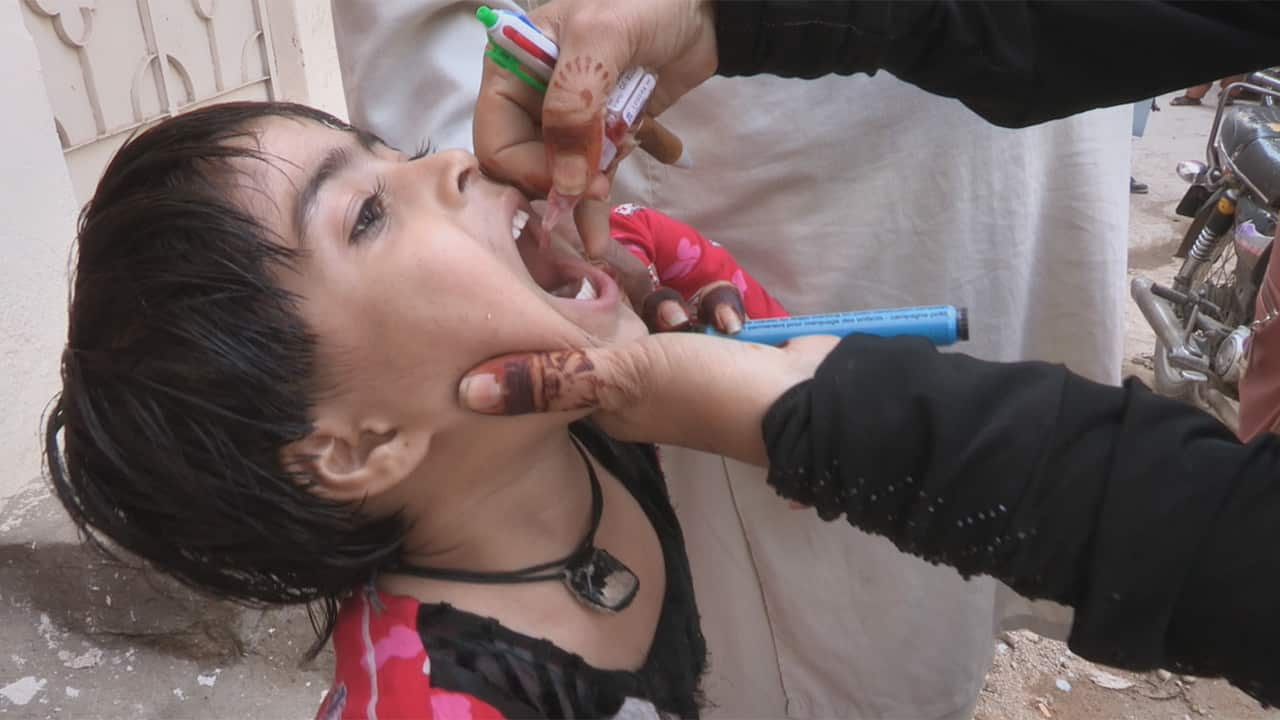What is it?Polio, or poliomyelitis, is a highly infectious viral disease that can cause paralysis and death. It is caused by infection by any one of three viruses, called polioviruses.
How do you get it?
You can pick up the virus if your hands, food or drink are contaminated with even tiny amounts of faeces or coughed up droplets from an infected person.
What does it do to you?
Most infected people do not have any symptoms, but can still spread the virus. 1 in 10 gets sick - developing a fever, headache, vomiting and in some cases severe muscle pain.
If the virus spreads to your brain or spinal cord it can paralyse your arms, legs, neck muscles or even the diaphragm muscle that you use to breathe.
Most people paralysed by polio recover, but 1 in 200 infected people is permanently paralysed - eg they could need help to walk or breathe for the rest of their life.
For every ten people paralysed by polio, one or two die because they cannot breathe.

How is it treated?
Polio can be prevented before infection by being vaccinated using a course of drops, but there is no cure for it after infection.
Antibiotics are used to treat secondary (bacterial) infections, while muscle pain and spasms are treated using medication and physiotherapy.
For patients who need help to breathe, portable ventilators now replace the 'iron lung' chambers of the 1950s.
How common is it?
Polio cases have decreased by over 99% since 1988, from an estimated 350,000 cases then, to 416 reported cases in 2013.
But Polio is still endemic in three countries - Pakistan (as shown in Dateline's story Vaccination Vigilantes), Nigeria and Afghanistan. Endemic means the disease is self-sustaining without new cases being brought in from abroad. Large numbers of cases have also been reported in Chad and the Democratic Republic of the Congo.
Australia's last reported case was in 1986 and the entire Western Pacific region was declated polio free in 2000, but the World Health Organisation warns that as long as even one person remains infected somewhere in the world, all countries are at risk.
Sources:
- NSW Department of Health
- Better Health Channel (Victorian Department of Health)
- World Health Organisation
- Jabbed (SBS Documentary)
More
Dateline is an award-winning Australian, international documentary series airing for over 40 years. Each week Dateline scours the globe to bring you a world of daring stories. Read more about Dateline
Have a story or comment? Contact Us


